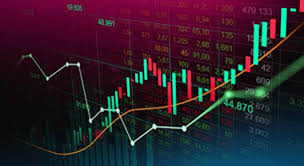
Is Forex Trading Gambling? A Deep Dive into the Risks and Rewards
Forex trading has gained immense popularity over the past couple of decades, attracting millions of individuals from all walks of life. Its allure lies in the promise of substantial profits, quick returns, and the ability to operate in a highly liquid market. However, many individuals question whether Forex trading is merely a form of gambling. In this article, we will explore the similarities and differences between Forex trading and gambling, highlighting the inherent risks, strategies, and psychological factors involved. If you’re looking to delve into this fascinating world, check out is forex trading gambling Trading Platform PH, a resource for traders.
Understanding Forex Trading
Forex trading, or foreign exchange trading, involves the buying and selling of currencies in the global market. It operates 24 hours a day, five days a week, and is one of the largest financial markets in the world. Unlike stock trading, where transactions occur during specific hours of stock exchanges, Forex allows traders to capitalize on currency fluctuations at any time. The aim is to profit from the changes in currency values, which can be influenced by various factors such as economic indicators, geopolitical events, and market sentiment.
The Nature of Gambling
Gambling, on the other hand, involves betting on uncertain outcomes, hoping for a favorable result. It is typically characterized by games of chance, where players risk money or valuables in hopes of winning more. Common forms of gambling include casino games, sports betting, and lotteries. Unlike Forex trading, where there are strategies and analyses to guide decisions, gambling outcomes are often random, relying heavily on luck, and with a predetermined house edge.

Similarities Between Forex Trading and Gambling
At first glance, Forex trading and gambling may appear to share common traits, such as risk-taking and the potential for quick gains. Here are some key similarities:
- Risk and Uncertainty: Both Forex trading and gambling involve taking risks where the outcome is uncertain. Traders and gamblers are both vulnerable to market volatility and unexpected events.
- Emotional Decisions: In both arenas, emotions play a significant role. Fear and greed can influence decision-making, leading to impulsive actions that may result in losses.
- Potential for Quick Returns: Both activities have the potential for rapid gains, which can be appealing to individuals seeking immediate gratification.
Differences Between Forex Trading and Gambling
While there are similarities, significant differences distinguish Forex trading from gambling:
- Analysis and Strategy: One of the most crucial differences is that Forex trading involves analysis and strategy. Traders use technical and fundamental analyses to make informed decisions based on market data, trends, and economic indicators. In contrast, gambling often relies on luck:
- Skill vs. Chance: Forex trading requires knowledge, experience, and skill, whereas gambling often depends more on chance. A skilled trader can increase their odds of success through proper analysis and risk management.
- Market Knowledge: Forex traders can study the market, learn about different economic factors, and understand the currency pairs they are trading. This knowledge enables them to make informed decisions, unlike gamblers who may lack insight into the games they play.
- Regulation: Forex markets are heavily regulated in many regions, while gambling regulations differ widely between jurisdictions.

The Psychological Aspect
The psychological aspect is a critical component in both Forex trading and gambling. The thrill of trading or betting can lead to emotional highs and lows that affect decision making. Traders may experience fear of missing out (FOMO) or anxiety over losses, which can lead to poor decision-making. To mitigate these risks, successful traders often adopt disciplined trading plans, set strict risk management rules, and maintain a level-headed approach to trading.
Risk Management in Forex Trading
One significant advantage of Forex trading over gambling is the use of risk management strategies. Experienced traders utilize techniques such as stop-loss orders, position sizing, and diversification to protect their investments. Risk management allows traders to limit potential losses and preserve their capital, making it a critical component of successful trading. In gambling, players often have no control over the outcome, and managing risk may be more challenging.
Conclusion
In summary, while Forex trading and gambling share certain attributes, they are fundamentally different activities. Forex trading can be a lucrative pursuit for those who are willing to invest time and effort into learning the craft, developing strategies, and managing risks. It is a skill that can be honed, as opposed to gambling, which often relies on chance. Understanding these distinctions is vital for anyone considering entering the world of Forex trading. Ultimately, whether you view Forex trading as gambling or a legitimate investment opportunity depends on your understanding and approach to the market.
